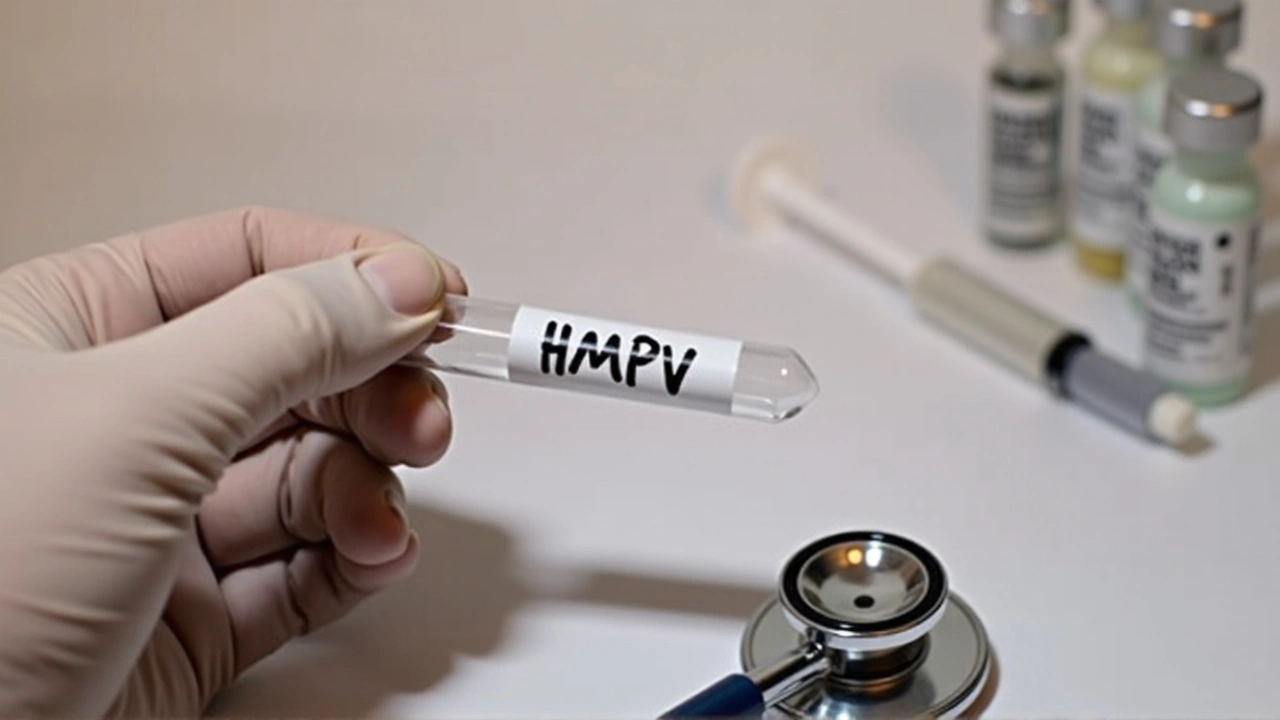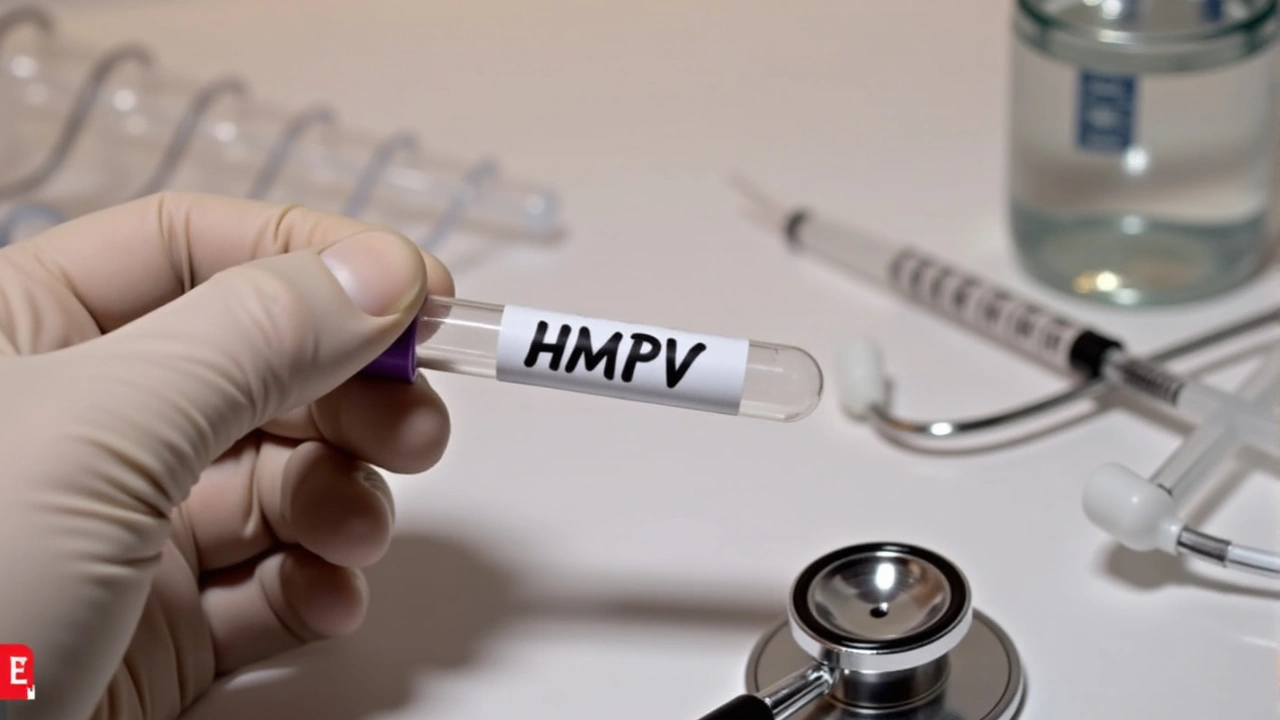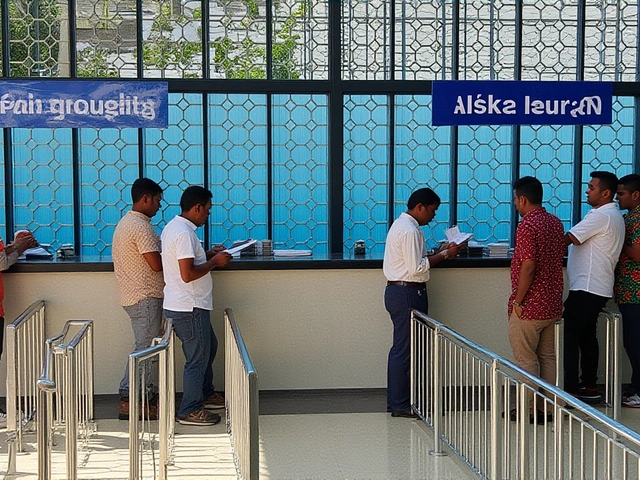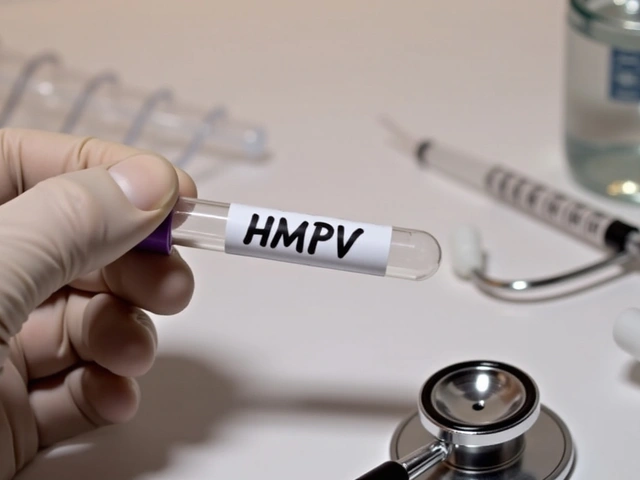What is Human Metapneumovirus (HMPV)?
Human Metapneumovirus, abbreviated as HMPV, has been drawing attention recently due to its role in a surge of respiratory illnesses in China. Although many might not have heard of it before, HMPV is not entirely new. It was first identified in 2001 and has since been recognized as a common cause of respiratory tract infections. Its symptoms often mimic those of the common cold or influenza, including fever, cough, nasal congestion, and sore throat. These resemblances to other viral infections can sometimes obscure its diagnosis, making vigilance and awareness vital.
Typically, HMPV affects people in a manner similar to other respiratory viruses. However, its consequences are more severe in children under five, the elderly, and individuals with compromised immune systems. In these vulnerable populations, HMPV can lead to serious complications, such as bronchitis and pneumonia, which may require medical attention. Experts emphasize that while the virus can be alarming due to its similarity to more notorious infections like COVID-19, there are important distinctions and factors to consider.
Symptoms and Complications of HMPV
Identifying symptoms of HMPV is crucial for preventing its spread and managing its impact, especially since they often overlap with those of other common illnesses. In addition to the usual respiratory symptoms—such as cough, runny nose, sore throat, and fever—individuals may experience nausea, vomiting, and diarrhea. These symptoms generally last between two to five days; however, there are cases where they can progress to more severe forms, causing significant distress.
The most concerning aspect of HMPV is its potential to cause lower respiratory infections. Severe outcomes can include acute bronchitis and pneumonia, predominantly among children and elderly patients. Furthermore, adults with underlying health problems or weakened immune systems can develop grave conditions such as a severe middle ear infection, which otherwise is not commonly observed. Thus, awareness of these potential complications, coupled with widespread education about the virus, can help mitigate some of the health risks associated with it.
Diagnosis and Detection of HMPV
Diagnosing HMPV can be challenging due to symptom similarities with other infectious diseases. Health practitioners typically begin with a thorough physical examination and an inquiry into medical history. If HMPV is suspected, doctors may perform nasal, throat, or mouth swabs to secure samples for laboratory analysis. Rapid antigen tests and advanced PCR (polymerase chain reaction) tests are commonly employed to detect the virus, providing an accurate diagnosis.
In cases where symptoms are particularly severe or persistent, a bronchoscopy might be recommended to gain a clearer view of the respiratory system. Although invasive, this procedure can be crucial in determining the extent of the viral infection and ensuring proper management. Hospitals and clinics are advised to maintain readiness, ensuring that frontline healthcare professionals are adequately trained to identify and address this disease.
Treatment and Supportive Care
At present, no specific antiviral treatment or vaccine is available for HMPV. This lack of directed medical intervention underscores the importance of supportive care as the primary approach to treatment. To ease symptoms and promote recovery, individuals diagnosed with HMPV are often prescribed over-the-counter medications such as acetaminophen and ibuprofen for pain and fever management. Decongestants and inhalers can also be useful for alleviating breathing issues, while corticosteroid nasal sprays might be recommended to reduce nasal inflammation.
In more severe cases, doctors may consider prescribing steroids like prednisone for inflammation control. It is essential for patients and caregivers to understand that, beyond direct treatment, rest, hydration, and nutritious food also play a significant role in recovery. Patients are encouraged to monitor their symptoms, adhere to medical advice, and seek prompt medical attention if their condition worsens or fails to improve as expected.
Preventive Strategies and Public Awareness
With the absence of a vaccine, preventive measures remain the strongest defense against the spread of HMPV. Individuals can reduce their risk of infection by practicing rigorous hygiene habits—such as frequent hand washing with soap and water, avoiding close contact with infected persons, and regularly disinfecting frequently touched surfaces. Respiratory etiquette, including covering one’s mouth and nose when coughing or sneezing, is also instrumental in curbing transmission.
The educational efforts must not only aim to enhance public knowledge of HMPV but also strive to inform about the importance of identifying high-risk groups and the supportive measures required for them. Health officials and community leaders play a critical role in disseminating clear, factual information, thereby preventing misinformation and unnecessary panic among populations.

Current Situation in China and Global Outlook
Despite recent alarm over the surge of respiratory illnesses in China, reports of a state of emergency conflict with official statements. To date, neither Chinese authorities nor the World Health Organization (WHO) has declared an official emergency concerning HMPV. Nonetheless, the situation remains under active surveillance, as health experts highlight the crucial need for continuous monitoring and transparent communication from all stakeholders.
The current scenario extends a reminder to the global community of the interconnectedness of human health and the need for preparedness against emerging and established infectious diseases alike. By reinforcing our collective commitment to proactive health measures, public education, and science-backed health practices, we can navigate the challenges posed by viral outbreaks, including HMPV.








Dr Nimit Shah
January 6, 2025 AT 18:05While the article does a decent job outlining HMPV, it glosses over the sheer importance of traditional health practices that have protected our people for centuries. A truly comprehensive guide would emphasize how Ayurveda and home remedies can complement modern supportive care.
Ketan Shah
January 13, 2025 AT 16:45The piece offers a solid overview, yet I would add that understanding regional variations in virus circulation can improve public health strategies. Sharing best practices across cultures enhances our collective response.
Aryan Pawar
January 20, 2025 AT 15:25Great info keep it up you’ve got this
Shritam Mohanty
January 27, 2025 AT 14:05Don’t be fooled by the official narrative – this surge is clearly a manufactured crisis to push hidden agendas.
shubham garg
February 3, 2025 AT 12:45Stay hydrated and rest, it helps your body fight the virus.
Prakashchander Bhatt
February 10, 2025 AT 11:25I totally agree, staying positive and following basic care can speed up recovery, keep the morale high! It’s amazing how a little optimism can make a real difference.
Mala Strahle
February 17, 2025 AT 10:05Indeed, the power of optimism should not be underestimated when confronting any respiratory illness. Maintaining a positive mindset encourages patients to adhere to supportive care measures, which in turn can shorten the duration of symptoms. Moreover, a hopeful attitude often leads to better sleep quality, and sleep is a crucial component of immune function. It is also worth noting that social support, bolstered by an optimistic outlook, can mitigate feelings of isolation during recovery. In practice, clinicians who emphasize encouragement alongside clinical instructions observe higher compliance rates. Patients who believe in their capacity to recover are more likely to stay hydrated and rest adequately, both of which are essential for combating HMPV. Furthermore, optimism can reduce stress‑induced cortisol spikes that might otherwise suppress immune defenses. The cumulative effect of these factors creates a virtuous cycle of healing. While medical interventions remain indispensable, the psychosocial dimension plays a complementary role that deserves recognition. Consequently, health communication strategies should integrate uplifting messaging without downplaying the seriousness of the condition. Educational materials that blend factual information with encouraging language tend to resonate better with diverse audiences. Finally, future research could explore how structured optimism‑building programs influence outcomes in viral respiratory infections.
LEO MOTTA ESCRITOR
February 24, 2025 AT 08:45That’s a solid point, and I think adding community workshops could bridge the knowledge gap even further.
Sonia Singh
March 3, 2025 AT 07:25Absolutely, spreading awareness in a relaxed, friendly way makes people more likely to adopt good hygiene habits.
Ashutosh Bilange
March 10, 2025 AT 06:05Yo bro your article is like a snoozefest, where’s the drama in fighting a virus? Need some real talk!
Kaushal Skngh
March 17, 2025 AT 04:45Honestly, the piece could use a tighter focus; too much fluff leaves readers drifting.
Harshit Gupta
March 24, 2025 AT 03:25While you suggest plain rest, the real solution lies in aggressive early intervention with experimental antivirals that the mainstream refuses to discuss.
Anuj Panchal
March 31, 2025 AT 03:05Your proposition, albeit provocative, overlooks the pharmacokinetic constraints and the necessity for evidence‑based protocols before advocating off‑label therapeutics.